Contrasting approaches to Esso and to local investors
Introduction It has been nearly a month since the last column appeared on October 19 under the title Complex for the White Man, Disdain for Locals.
Introduction It has been nearly a month since the last column appeared on October 19 under the title Complex for the White Man, Disdain for Locals.
Introduction During the recently-concluded United Nations General Assembly in New York, USA, the Guyana Delegation led by Foreign Minister Carl Greenidge facilitated a meeting between the Governor of the Bank of Guyana and representatives of Merrill Lynch, the investment arm of the Bank of America Corporation which had expressed an interest in Guyana’s proposed Sovereign Wealth Fund.
Introduction In an advertisement appearing in the national media yesterday, the Ministry of Natural Resources, on its own behalf and that of the Government of Guyana, invited expressions of interest by Consultants desirous of providing services to the Project Execution Unit, presumably of the Ministry, to “conduct an audit of the Recoverable Contract Costs as called for in the signed Production Sharing Contract(s).”
Introduction Following last week’s call for a Commission of Inquiry into the Petroleum Sector, more than a handful of individuals approached me enquiring whether the call was serious and what would be the expected outcome.
Introduction It was good to see Dr. Mark Bynoe, Director/Head of the Department of Energy in the Ministry of the Presidency speaking publicly on the petroleum sector.
Introduction Amid all the noise about audits and Memorandum of Understanding, it is understandable and not at all surprising that a letter to the editor might have received less attention than it would have otherwise deserved.
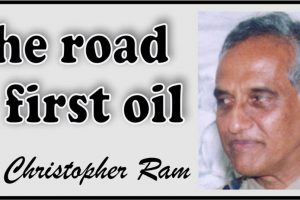
Introduction It has been over one month since the Ministry of Finance tabled in the National Assembly a fifty-one page document which it claims presents “preliminary proposals” to stimulate discussion on its plan for managing the flows from petroleum operations following first oil estimated to flow by the end of the first quarter of 2020.
Introduction The 2016 Petroleum Agreement has been a source of grief, anger, disbelief and shock to the average Guyanese whether living inside or outside Guyana.

Introduction Recall that Column # 54 published in this column last week cited two Emancipation Day speeches, one from President Granger which was discussed at some length in the same column.
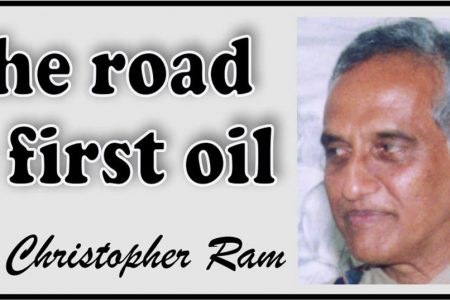
(Part 54) Introduction Events marking Emancipation Day saw two significant statements from two leading Afro-Guyanese leaders, President David Granger and Professor Clive Thomas.

Introduction Surprise would be a mild word to describe the reaction of many Guyanese to the report by Minister of State Joseph Harmon that President Granger had appointed Dr.
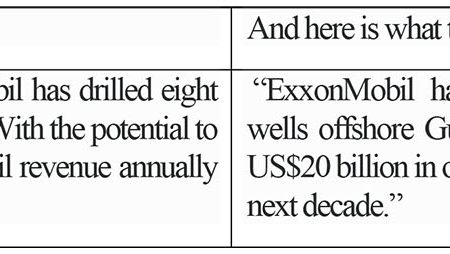
Introduction I will resume the piece on Getting the work done next week to allow me in today’s column to address the outpouring of anger and hurt expressed by politicians, columnists, letter writers and contributors in the print and social media over an article in the New York Times one week ago.
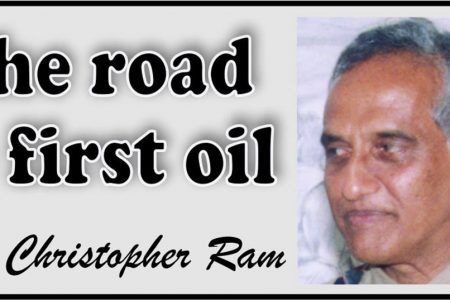
Introduction In the previous column in which I examined whether Guyana was prepared for First Oil in 2020, I wrote that the situation is not irretrievable but that “there need[ed] to be manpower changes and more leadership from the President.”

Introduction Inspired by the May 20, 2015 announcement by ExxonMobil that it had made the largest discovery of petroleum resources for that year off the coast of Guyana, this column with the title Road to First Oil began, coincidentally, on May 26, 2017 and was expected to run for approximately twenty-five weeks.

Introduction We continue and conclude today on what is known as Sovereign Wealth Funds, essentially special purpose state-owned investment funds to achieve financial objectives using investment strategies, tools and instruments.

Introduction Column 40 noted that in practice, any Sovereign Wealth Fund for Guyana has to take a whole host of factors into account, including the country’s recurring deficits which are financed by loans; the deficit in its infrastructure; future revenue gains and losses; commodity prices including that of oil; and citizens’ rising expectations.

Introduction This column turns attention to the Environment Impact Assessment (EIA) for the Liza Phase 1 Develop-ment Project done by Environmental Resources Management (ERM) an external consultancy firm which describes itself as is a leading global provider of environmental, health, safety, risk, social consulting services and sustainability related services.

Introduction For a country that will soon become petroleum dependent, Guyana’s petroleum legislation is not particularly expansive.

Introduction After the major financial issue last week, we return today to the mundane issue of the provisions on non-associated gas in the 2016 Agreement which the three oil companies signed in June 2016.
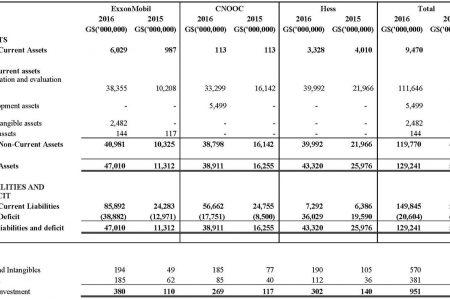
Column 43 dealt mainly with Associated Gas and my plan was to deal with non-associated gas this week.
The ePaper edition, on the Web & in stores for Android, iPhone & iPad.
Included free with your web subscription. Learn more.